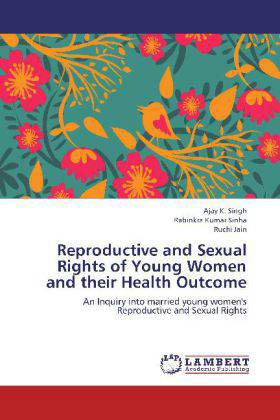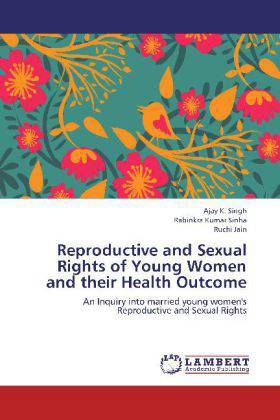
- Afhalen na 1 uur in een winkel met voorraad
- Gratis thuislevering in België vanaf € 30
- Ruim aanbod met 7 miljoen producten
- Afhalen na 1 uur in een winkel met voorraad
- Gratis thuislevering in België vanaf € 30
- Ruim aanbod met 7 miljoen producten
Zoeken
Reproductive and Sexual Rights of Young Women and their Health Outcome
An Inquiry into married young women's Reproductive and Sexual Rights
Ajay K. Singh, Rabinkra Kumar Sinha, Ruchi Jain
Paperback | Engels
€ 100,45
+ 200 punten
Omschrijving
Unequal power relations and lack of autonomy characterize the situation of married women in many settings; the autonomy of married young women is particularly constrained. In many countries in South Asia and the Middle East, early and arranged marriages are the norm and in most cases, the young woman scarcely knows her husband and is not involved in marriage-related decision-making. Worldwide, at least one woman in three has been beaten, coerced into sex, or otherwise abused in her lifetime (JHU, 1999). Many young women are faced with the challenge of saying no to unprotected sex, especially when dependent economically and socially on their male partners. The fear of violent consequences contributes to the absence of any negotiating position for protected sex (Development studies Network, 2000). This study tries to explore the young married women's perception on sexual and reproductive rights, gender roles and husband s behavior and its association with their experiences of sexual & physical violence and health problems.
Specificaties
Betrokkenen
- Auteur(s):
- Uitgeverij:
Inhoud
- Aantal bladzijden:
- 292
- Taal:
- Engels
Eigenschappen
- Productcode (EAN):
- 9783659000409
- Verschijningsdatum:
- 27/04/2012
- Uitvoering:
- Paperback
- Afmetingen:
- 150 mm x 220 mm
- Gewicht:
- 431 g

Alleen bij Standaard Boekhandel
+ 200 punten op je klantenkaart van Standaard Boekhandel
Beoordelingen
We publiceren alleen reviews die voldoen aan de voorwaarden voor reviews. Bekijk onze voorwaarden voor reviews.







